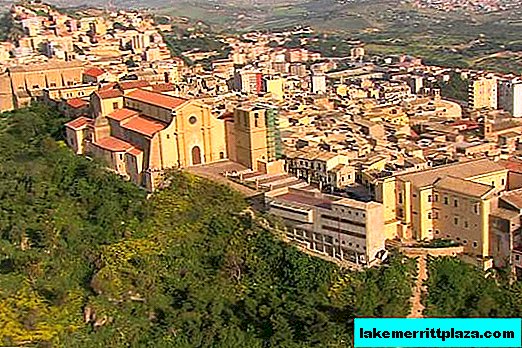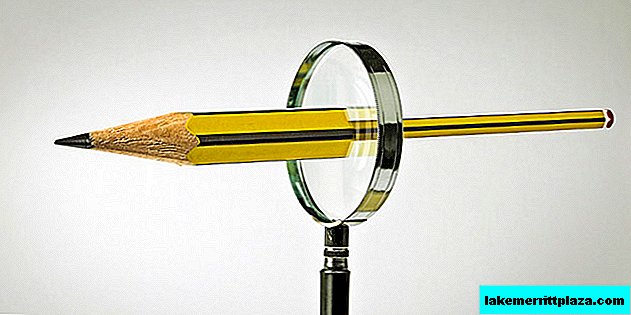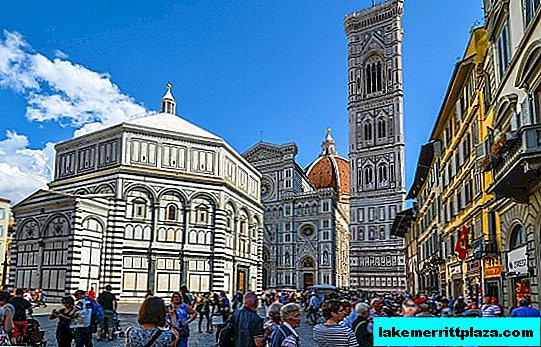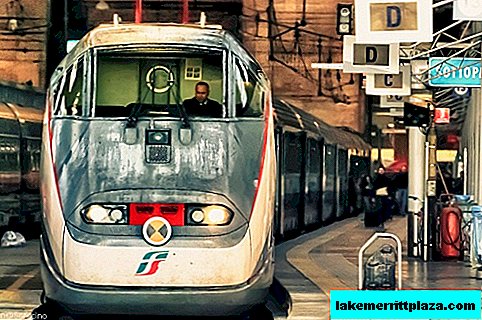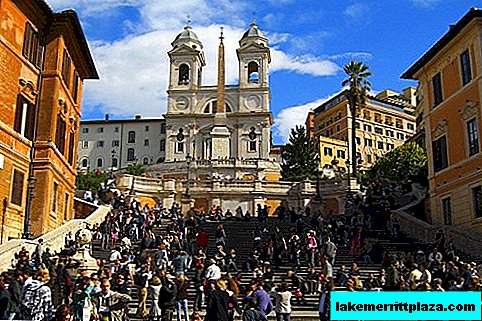If the villas of the provinces of Montalcino and Prato had to be suddenly deleted from the list of the best European wineries, today no sommelier would mention Italian wine in the map of his restaurant. The beauties of Florence impress fans of Italy, but the taste of Tuscan wine will remain in their memory forever.
Winemaking culture

They joke that, as a result of the increased interest of travelers in wine farms, architectural Italy is completely deprived of attention. It is noteworthy that Tuscany delivers wine with enviable regularity on the table of Italian and European gourmet.
Tours to Tuscany - a popular and profitable tourism industry both domestically and in the international arena. Fans of Antinori Classico and Carmignano come in numerous groups to the famous wine region. In the holy of holies of winemaking, travelers will be able to take photos of incredibly beautiful landscapes, visit the factory, visit wine growers, try the best varieties of young wines and buy something with them.
Types of Red Tuscan Wine
Ordinary red wine
- young red: a characteristic sample - a quality-made Chianti - the drink is supposed to be fresh, bitter and slightly foamy. Ready-to-eat product must not be older than a year. The business card of such a drink is a light refined astringency;
- classic: red and pink wines of the Classico and Rosso type, cooked in the estates of Montalcino, Montepulciano, Carmignano. Especially aromatic, rich drinks with intense cherry and currant accords typical of sangiovese berries;
- wine from the estates: Vino da Tavola products from rich estates in demand on the world market. This also includes the type of Riserva.
We recommend reading about Montepulciano D'Abruzzo wine
Premium red wine
- Chianti Classico Riserva (Chianti Classico Reserva) is distinguished by its delicate tastefulness with a distinct berry accent and a pleasant pungency inherent in the sangiovese vine berries;
- Carmignano;
- Brunello di Montalcino;
- Vino da Tavola;
- delicate Italian Vino Nobile.
Great white wines
- Vernaccia di San Gimignano from the city of San Gimignano;
- Bianco Vergine Valdichiana.
How to choose a quality Tuscan wine?
Chianti is a fairly affordable drink, it is widely represented in Italy, and the price at retail outlets is not much different. However, the choice of a good product is best taken with caution. Some importers and budget restaurants in Italy are buying up booze, the price of which is favorably low in comparison with quality. Red wine bought outside the Tuscany region can easily be fake.
Classico and Rosso from Brunello, Carmignano, Vino Nobile and the best products in the Vino da Tavola class are best purchased in branded grocery boutiques. White wine from Tuscan cellars is also inaccessible, although only red wine is most valued in this region. The effort spent searching for white wines rarely justifies itself, as does the price.
Tuscany Viticulture Villas

Bright green hills and squat peaks - the Tuscan valley seems hand-drawn! Somewhere there behind a light screen of cypress groves and rows of lush olive trees sheltered Carmignano, a friendly communal village. This is Italy's smallest winery with a total vineyard area of 220 hectares.
The area inherited from the Etruscans seems to have really smelled of olive oil, honey and confiture. Even if there were no vineyards here, a keen foreigner would admire delicious cheeses, pastries and fruits with admiration, moving from farm to farm. But the Carmignano estate is known for its grapes.
A guided tour of the wineries will illustrate Italian hospitality and generosity - the price of wine in this place of Tuscany is 10-12% lower than in the city. After the tour, helpful farmers will offer you to purchase the alcohol and food you like, they will advise you on a place to relax or overnight. Each villa in the town is surprising in its own way, popular among tourists: Tenuta Le Farnete, Capezzana, Artimino, Piaggia.
Carmignano
Brillante carmignano
A fragrant purple-red drink with fruity expressiveness and hints of violet is made from sangiovese and black canaiolo berries. Served with meat dishes and poultry treats.
By the way, the name of the wine product "Carmignano" is recognized as one of the oldest in Italy. The state archives of Florence keep a rental list, which testifies that in 804, Italian wine and olive oil production was actively developed in the municipality of Carmignano. The exact use of this term for the name of alcohol dates back to 1396: on the invoice, the notary Lapo Mazzei asks the merchant Marco Datini to sell red wine in 15 barrels, promising that the piece price will be four times higher than for the products of other Parto winemakers. There is even poetry singing local alcohol.
Barco reale di carmignano
Red Barco Reale di Carmignano is a drink from the Carmignano family of wines with an even fuller berry taste and aroma. Vin Santo - dessert treat, aged up to 5 years, is remembered by a straw, almost amber shade and softness. It is sure to be tasted by all the guests of the village in the bite with the flour sweets of the province of Prato.
Read Before Buying
"Classico" (Classico) talks about exacting control over the technology of winemaking.
"Riserva" - An indicator of the elite quality of a product made according to the principles of long exposure. In practice, they mean good dryness of the drink.
"Vino da Tavola" - such an inscription is placed on its products by the villa-manufacturer, which often indicates exceptional quality - fermentation according to the DOC principles.
Advice! Be careful, on sale there are low-grade cheap drinks marked "Vino da Tavola", - its price hints at the quality of the wine!
Contrary to Recipes

On the hills of fertile Tuscany they get the famous Chianti wine - in the whole country it is revered as a kind of symbol that presents Italian winemaking to the world.
Villa Tignanelio, and later Sassicaia, have chosen their independent vine processing method to demonstrate the inexhaustible potential of Tuscan land. Setting aside the foundations and traditions, winegrowers experimented with different varieties and aging periods. Thus, their own "rebellious" recipe was born.
In search of the best taste, farmers mixed traditional and forbidden vines - merlot and cabernet-sauvignon. As a result, an undiluted Sangiovese fermentation was obtained, aged in an atypical size in oak barrels. The price of the product was impressive, in the shops it was positioned as alcohol for dinner. Vina da Tavola became famous in the 80s, attracting connoisseurs with elaborate bottles and names like Sammarco or Cepparello.
Antinori

Antinori (Antinori) - opened in the fall of 2012 wine production Chianti Classico (Chianti Classico). This place close to the museum tells the true story of the birth of wine, tightly connected with Tuscany. In the spacious cellar Antinori fits up to 2 thousand wine barrels. A place of honor at Visanto Antinori - a traditional Tuscan wine from raisin trebbiano and dried malvasia. Strong sunny drink with a nutty flavor. Famous varieties of this winery: Villa Antinori Toscana, Marchesi Antinori, Peppoli Chianti Classico.
This place is the birthplace of the Antinori dynasty, so a winemaking museum is organized in the new building, and a restaurant named after the founder is on the roof. The fame of the estate and the price of local food and alcohol appeal to all travelers without exception. The Antinori family has been engaged in wine production since 1180.
By the way, to visit the tasting rooms of the new Antinori winery in Chianti Classico is also worth it because the amazing building is recognized as the best building of 2014. In addition, she is the only one of all the wineries of the Antinori dynasty, in which the presence of tourists is allowed.
Where else to visit and what to try?
Tuscany is a region where almost all red wine is made from Sangiovese. Chianti and Antinori are made from small Sangiovese piccolo berries, and Brunello di Montalcino is matured from a larger Sangiovese grosso variety. The drink from these fruits is always piquant-fresh, slightly harsh in taste, with herb-spicy notes.
In many Florentine bars, young wine is poured from thatched 2-liter bottles - fiasco. This is an old Italian invention. Such containers for storing wines today are almost never used. This is exactly the drink that Baron Ricasoli, the wine developer of the 19th century, meant by chianti. Such red wine is obtained in the first year after removing the berries.
Winemakers of the past stood chianti in old oak barrels, and not too picky legislation allowed to keep in a blend up to a third of the trebbiano, which gives the wine an unpleasant orange note. To the relief of connoisseurs, norms were soon adopted, which almost ten times reduced the permissible percentage of white grape varieties. Now the use of impurities is completely prohibited. Normally, a high-quality drink of this brand may contain no more than 10% of secondary varieties.
Villa Tignanello has laid the tradition that most top-notch Chianti, in addition to the Sangiovese, contain a certain part of Cabernet, Italian Merlot and Syrah vines.
Villa Carmignano, a delightful place in the west of Florence, cultivates excellent cabernet. The leaders in the production of villas Capezzana and Trefiano. It is these manufacturers who make wines in those very small oak barrels: such a product almost does not lose its fruity aroma and does not oxidize. In this region of Tuscany it is better to take wines of the Classico type: Antinori, Castellare, Castello di Volpaia, Ruffino, Basciano.
Vine with character

Sangiovese is surprising in that it is able to acquire new taste traits depending on the place of breeding. The vines, sprouted on scanty land and in a cool climate, fill the wine with a deep, rich, expressive taste - they produce the elite Brunello di Montalcino. This variety is incredibly appreciated by all of Italy. It can truly be considered a magnificent, complex drink, but the price for it is not always justified, not every sample meets the requested value.
Norms oblige to make wine in barrels, which are not always convenient for fermentation. But from the young wine Rosso di Montalcino (Rosso Montalcino) you can expect an expressive mild taste, if you extend the aging time. The drink has an excellent less seasoned performance of Rosso - Rosso di Montepulciano.
The best wineries Rosso

The most sought after wines produced: Altesino, Caparzo, Costanti, Argiants.
The Chianti Classico wine region in Tuscany is the leading of the seven existing Chianti zones in Italy. All the best Tuscan wines are delivered from the estates of experienced master winemakers. “Classico” and “Rosso” receive raw materials for the real Chianti from the distinguished wine growers of the region. Due to lower standards, getting a high-quality drink even in Italy is very difficult. But elite producers of wine such as Antinori confidently follow the viticultural traditions, even in the commercial production of alcoholic beverages.

